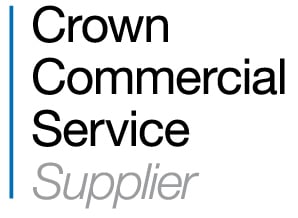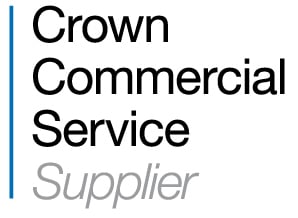Unlocking Insights from Data to Improve Policy and Decision Making

This is an open programme and an in-house training course, which we can deliver either online or in person. For further information and pricing contact [email protected] or phone on +44 20 7661 7817.

Global Government Forum, as part of Pendragon International Media Ltd, have been named as a supplier on Crown Commercial Service’s Learning & Training Services DPS Framework. All our Learning and Training services are included in the framework.
Crown Commercial Service supports the public sector to achieve maximum commercial value when procuring common goods and services.
Overview
As more and more data is becoming available to civil servants in digital formats, including live information provided in real time, there are vast new opportunities being opened up for informing and supporting policy and decision making processes. Data can be analysed, processed and its insights presented and assimilated in a way that previously took weeks or months. This seminar is designed to help you to understand and make the most of these opportunities by showing you a methodical way to harness the information in an efficient and timely way to inform your policy work.
Who is the seminar designed for?
The seminar is designed for civil servants and staff in the wider public sector at all levels, who need to understand how to make better use of the vast amounts of data that is now available, so that your performance in policy development and the decision making process can be significantly enhanced, while being underpinned by the information and insight that your organisational data, and that of other public bodies, contains.
How will you benefit from attending?
You will learn how to harness the insights that data can provide for you and your policy team, so that your policy making is better informed with archival, up-to-date, and even live real-time information in a way that has simply not been possible in the past. You will understand the kinds of initiatives that are being undertaken every day in this field, and how you can make the most of the vast organisational, governmental and private sector reserves of information available to you.
Learning Objectives
You will understand:
- What lessons have been learnt so far in terms of unlocking the insights in data most effectively
- Understand the importance of sharing data across government and how to do it to best effect
- Learn what organisations exist with vast amounts of data that you can use, as well as the developing legal frameworks for sharing information
- Understand how national data strategies are developing and how your work can fit into these, and how these will impact on your role in the near future
- Examine how to ensure that everyone you work with properly understands and is buying into the opportunities available
- Understand how dynamic and real time data can help your work
- Learn how AI can be used to assist the process of data analysis and help reveal insight from trends, live and historical data
Agenda
Understanding the Landscape
A brief overview of:
- What we mean by ‘data’ in government – different types, new forms of data
- Government organisations with responsibility for data and data policy
- Major data-related initiatives, frameworks, guidance and legislation
- The wider data ecosystem (public sector, third sector, business)
- Where to go for further support (cross-government communities, resources)
- Demystifying key terms and trends (including big data, AI)
Break
Finding and Sharing Data
- Where to find data
- Planning the data you will need from the beginning
- Data sharing in government
- Challenges and barriers (including legal, organisational/cultural, technical, political, covering eg law, governance and information management; leadership and culture; importance of standards and interoperability)
- Importance of trust and public engagement
- Recent initiatives and case studies (with examples of sharing data in government and engaging the public and building trust)
Break
Using, Analysing and Presenting Data
- Beneficial uses of data in government – analysis, decisions, better policy, better public services, resource allocation, better regulation, value for money
- Data visualisation
- Real time data and dashboards – pros and cons
- Recent initiatives and case studies (with examples of data analysis for policy and good data visualisation)
Final Questions and Discussion Session
Close
Trainer – Gavin Freeguard

Gavin Freeguard is a freelance consultant working on research, policy and advocacy around data, digital government and data visualization. He is an associate at the Institute for Government, where he was previously programme director responsible for data and digital government (including the Whitehall Monitor project) and continues to run the Data Bites event series. He is also a policy associate at Connected by Data, special adviser at the Open Data Institute, a member of the Public Digital network and has worked as a consultant for many organisations including mySociety, the Ada Lovelace Institute and Full Fact.
Before joining IfG, he was political adviser on culture, media and sport to Rt Hon Harriet Harman KC, and before that, senior editor at the Media Standards Trust and deputy director of the Orwell Prize.
Our L&D ethos
- We’re here to enable you to perform better!
Our L&D team
- All former practitioners, now professional trainers, our L&D team have provided open and bespoke solutions for more than 100,000 public servants from 120 countries
Our L&D seminars
- A vast reservoir of international, transferable knowledge and perspectives about effective, delivery-focused approaches to working smarter in the public sector
Please contact us for further details, or to arrange a conversation with a member of our training team to discuss in-house delivery options, including tailoring the day’s training to your specific organisational development needs.
You can email David Leakey on [email protected] or phone on +44 20 7661 7817.

Crown Commercial Service supports the public sector to achieve maximum commercial value when procuring common goods and services.








